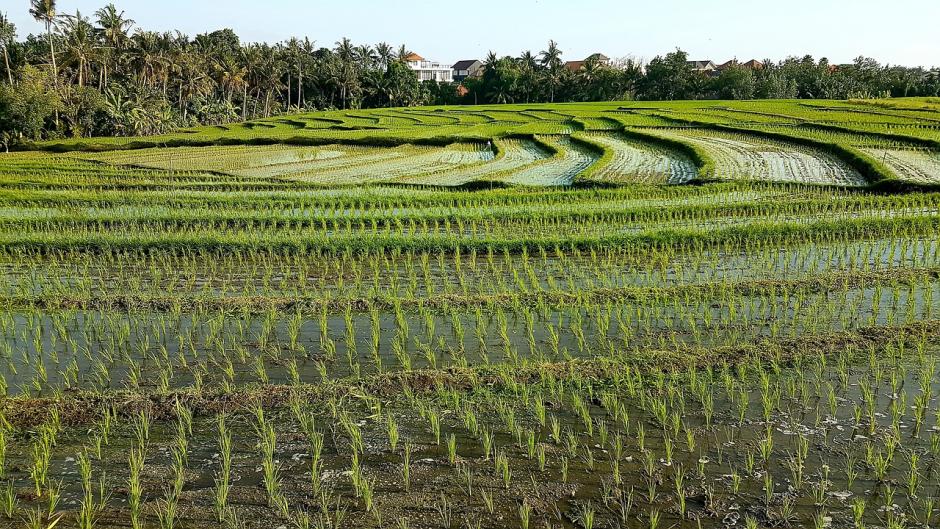
Every October 16th since 1979, World Food Day is commemorated, reminding us that article 25 of the Universal Declaration of Human Rights states: "everyone has the right to a standard of living adequate for her/his health and well-being.
Humanists have affirmed for decades that the scientific and technological development achieved by the unfolding of the historical civilization process is in a position to solve the problems of food for all humanity in a very short time. However, we are witnessing daily famines, malnutrition and subhuman suffering.
The 2019 report "The State of Food Security and Nutrition in the World", elaborated and published by FAO, UNICEF and WHO, among other international organizations, revealed that the scourge of hunger had not diminished for three years, a serious situation that has been exacerbated by the current pandemic.
This report estimates that more than 2,000,000,000 (two billion) people, do not have regular access to safe, nutritious and sufficient food and according to UNICEF estimates, the estimated figures of rickets is around two hundred million children.
Perhaps seeing statistics few people die daily directly from hunger (famine), but every day thousands perish from diseases and infections that are fatal, among other factors because of the low quantity and quality of food eaten.
Affected by malnutrition, twenty million children per year are born without being fully formed, with less weight than they should, with consequences for their entire lives. Every year three million children die suffering from diseases that chronic malnutrition favors, that is about 8,000 (eight thousand) children per day!
At least 2,500,000,000 (two and a half billion) people base their daily nutrition on a single food (rice, wheat, corn, millet or sorghum). Malnutrition in poor countries consists of eating little, the poor in rich countries eat a lot of poor quality food.
Paradoxically, food production on a global scale increased exorbitantly in the last decades. For example, cereal production has grown by more than 50% so far in the 21st century. It is clear that the problem is not a lack of food, in the richest continents more than 30% of the food produced is wasted.
Multinational companies monopolize the food chain, in production, trade and distribution. The tyranny of the so-called "free market" is largely responsible for reducing the real freedom of the people to acquire, produce and distribute food.
The food industry, like many productive sectors, is increasingly monopolized on a planetary scale by a group of big transnationals, which have turned food into merchandise. And together with big speculative capital, many financial institutions and investment funds use food to do business by artificially raising its prices.
The "great invention" of the financial system emerged in the midst of the economic crisis of 2008, when they created "food futures", that is, financial derivative markets that invest in food and generate large profits from future expectations and needs. Now it is not only producers and consumers, but also speculative maneuvers, which make food prices rise only for profit.
In addition to this, there is the pressure exerted by the agro-fuel sector; just with what US cars use in a year, it would be enough for all the hungry people in the world to receive half a kilo of corn per day.
It is necessary to emphasize that at the global level, peasant and family agriculture produces 70% of the world's food, having 25% of the arable land, while agribusinesses use 75% of the land to produce 25% of the food that is consumed, without also considering the damage that they produce by dehumanizing agriculture (depopulating the countryside and violating fundamental rights), at the ecological level (because of their bad practices, with their extensive monocultures that use massive amounts of pesticides and other agro-toxins, plundering the soils and contaminating rivers and aquifers) and distorting commercialization channels (leading small producers to bankruptcy).
Humanists believe that it is urgent and necessary to democratize access to land for the production and subsequent distribution of food. Something as basic as being able to feed oneself requires simple and profound measures at the same time.
It is essential to put an end to the predatory business and financial speculation on food. There is an urgent need to promote the use of agro-ecological technologies, with comprehensive agrarian reforms where they are needed, from fiscal strategies that eliminate unproductive land and discourage extensive latifundia monoculture that is socially exclusive, culturally genocidal, ecologically devastating and disrespectful of biodiversity.
Food should be developed under approaches linked to health, education and quality of life, both in its consumption and production. It is not valid to talk about the production of bioenergy like ethanol, as "clean", "sustainable" and "renewable" energy, when its production model is exclusive, not clean or sustainable.
Resources are surplus, it is not a question of whether or not one can feed all of humanity healthily, it is a question of whether one wants to.
The struggle for access to this elementary right is a permanent cause of denunciation for humanists.
The monstrosity of not having the same rights or the same opportunities is explained by a world oriented from its domes by the central value of money.
Every human being, by the simple fact of being born, deserves dignified living conditions, where feeding oneself for one's own well-being is paramount.
It will be the people who must take the lead in actions that put the human being and his or her needs for personal and social fulfillment at the center of the scale of values, in place of the current decadent and violent values
"The problem of food is an integral part of underdevelopment and
cannot be solved without restructuring the production system;
the modernization of social life; the elimination of areas of poverty and
the reorganization of the system of international economic relations.
It can only be overcome by global distribution of social,
scientific, ecological and spiritual progress.
In short, through the humanization of our Earth.
Dictionary of New Humanism
International Coordination Team Humanist Party
